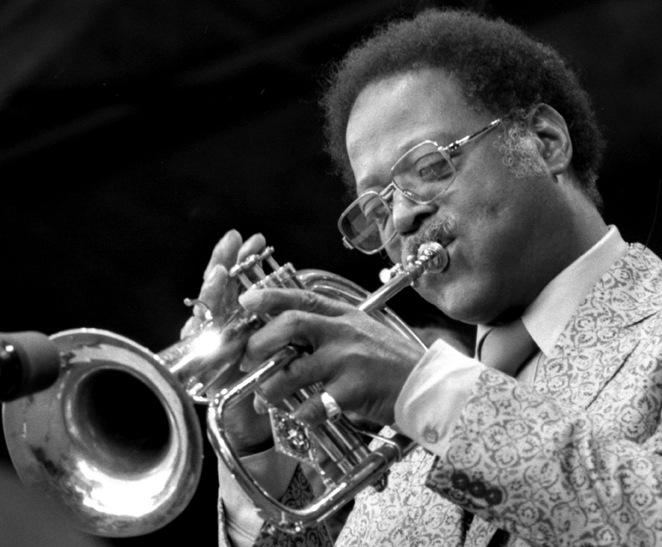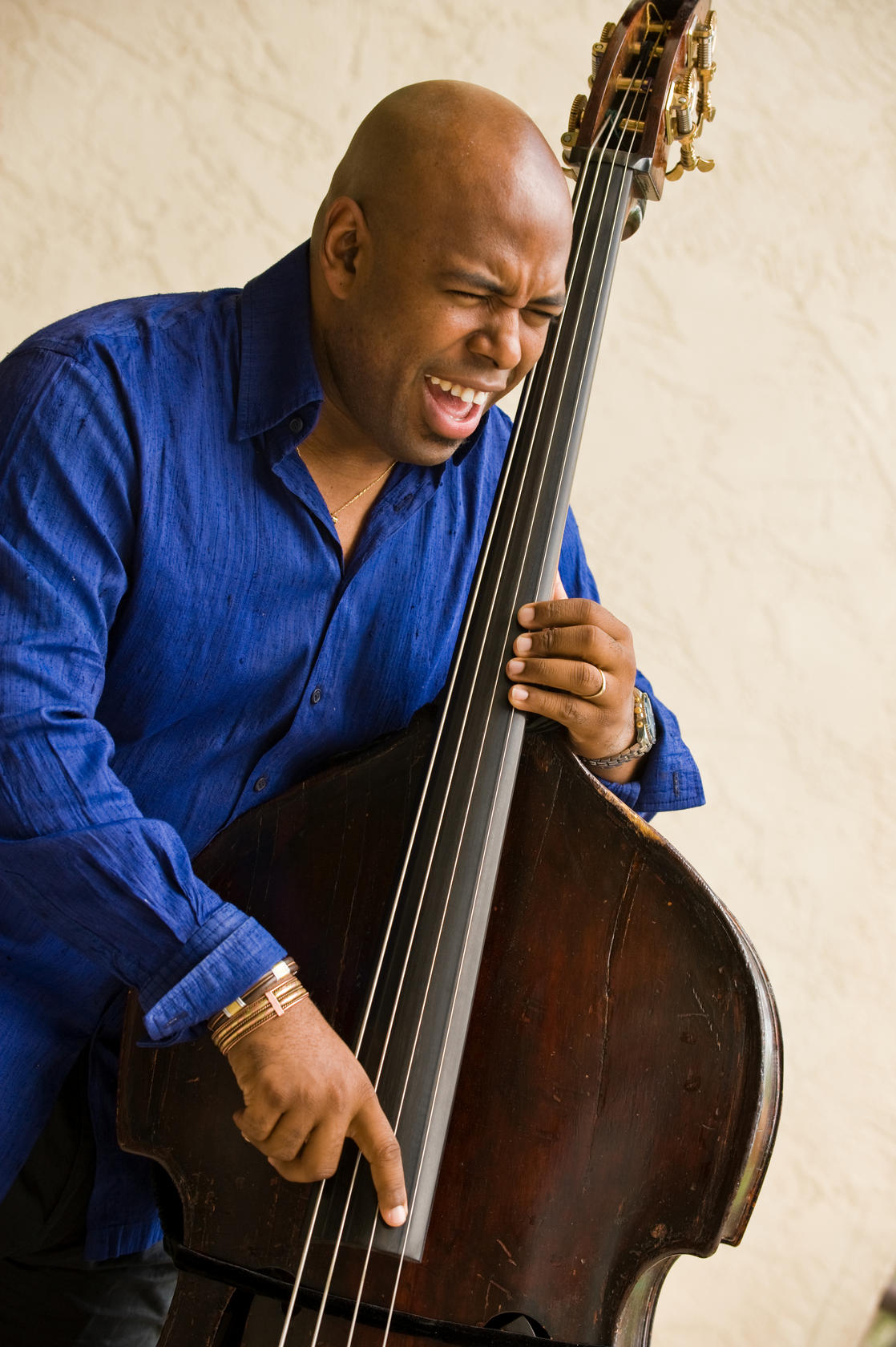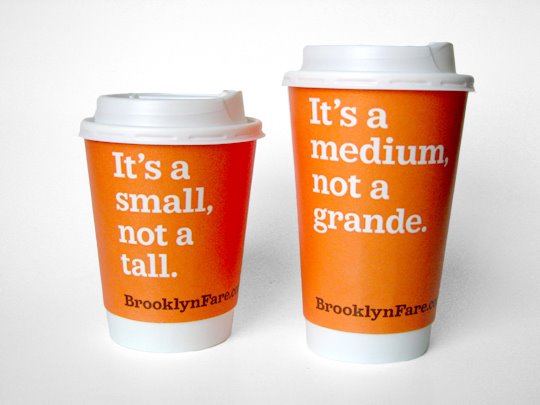I just returned to Portland from my third consecutive experience at the Reno Jazz Festival. It's a pretty amazing event; 8,000 students compete over 3 days in various categories of Middle School, High School and College Big Bands and Jazz Combos. It's been held for 53 years at the University of Nevada, Reno. They have a beautiful campus within a short walk of beautiful downtown Reno.
( Ahem.....) Well, I'd be lying if I said downtown Reno was picturesque, although there is a nice park near the Truckee River. Still, it's a great event and I always have fun. (This year, I had fun without alcohol! Yay!) It's cool to talk with other musicians and educators and of course hear some great students. They also have some great guest performers; this year, I got to hear the incredible Vertical Voices, and the amazing SF Jazz Collective. I got to play a jam session with saxophone greats Donny McCaslin and Jacam Manricks. There are a lot of clinics and performances throughout the day; as a judge, it can be just enough to get through the solid two days of judging, so I don't get to hear a lot of what I wish I could have heard.
I've been one of the feedback clinicians the past three years, the past two for High School Jazz Combos.
( I still hate the word combo, but I reluctantly use it just so jazzers west of the Mississippi know what I'm talking about. It's like saying "Small Coffee" instead of "Tall Coffee" at Starbucks; I just don't have the energy to rebel against their system.) I've heard a wide range of levels coming from these high schools; some of the groups would rival a college group, maybe even a professional group, and others are more at a beginner level. I found this year hat I was able to be positive and constructive with even the most rudimentary groups, and I also was able to find way to improve with the most advanced groups. The "feedback" component of each groups performance is in some ways odd because I believe that the stress of preparing for Reno, traveling by bus or car all the way to Reno, warming up and playing for 20 minutes and being nervous is probably enough for some of these kids; at that point, their energy is spent, and they are ready for some R and R. That's when they head for the "feedback room," and I get to tell them what I liked and didn't like. I find it rewarding, because my goal is never to make people feel bad. ( This year and last, I had a student stand up in the middle of my critique and say, " Excuse me, but I think I'm going to be sick." Both times, it was when I was commenting on something they did. I asked of course, " Was it something I said?" Their fellow students, on both occasions, said something like," No, they have a stomach bug or something....")
I always try to be positive, but I wouldn't be doing my job if I didn't call it as I see it. Overall, the fact that we still have music in any high school is probably a miracle, and the fact that young people are playing jazz is extremely hopeful. So right off the bat, just coming to an event like the Reno Jazz Festival is cause for celebration. However, I have noticed a few things that it seems like are common issues in high school jazz combos. I say this because I found myself saying the same things over and over during the feedback sessions. Here's a few things:
1. You cannot play small group jazz if you don't listen to jazz. Perhaps that sounds negative. Let's say it a different way; students should have a
listening regimen in addition to a
practice or
playing regimen. In classical music, or playing in an orchestra or wind ensemble, or even a big band, students are given 90 to 95 percent of the "material," which is that which is on the page; notes, dynamics, articulation, tempo, and so on. Small group jazz is totally different; the written material ends quickly, and at that point, the students are on their own. In big band, the solo sections are in some ways an afterthought, but in small group, they are everything. Some of the groups were pretty good at playing the melodies of the tunes they had selected, but between the head in and the head out, it was more of a "go for it" approach rather than deliberate jazz phrasing and vocabulary. Believe me, I understand that some of the developing groups I heard are probably satisfied with "getting though the concert." However, if a small group is going to exist, the "material" between the melodic portions has to be addressed in some way. This might sound crazy but I would almost rather that students write out a solo, with the guidance of their instructor, than to just "go for it." The "going for it" approach would be comparable to a stand up comedian going up on stage with no material. Most comedians spend months if not years honing their material. It might take a very long time even to come up with 10 minutes of material. Young musicians need time to "develop their material," so to speak. In some ways, this lack of material it's almost like a classical musician showing up to a concerto competition without any sheet music.
Where does the material come from? Well, as the late great Clark Terry said, " Imitate, Assimilate, Innovate."The jazz language is what the students are learning to speak, and they
have to hear it being spoken, as well as learn the theoretical knowledge
of chord scales. Will all due respect to how hard band directors in the U.S.A. have to work, I think it's possible to spend a bit of time with chord scale theory appropriate to the selected repertoire. I also think it wouldn't be hard to have some kind of listening time or listening assignments. In this era, no one has to buy records or even go to the library; students can hear s many jazz recording for free on youtube or spotify. Students need to hear the
 |
| Clark Terry: " Imitate, Assimilate, Innovate." |
language spoken in order to have any sort chance.
One frequent question I asked the students was "Who are your top five musicians on your instrument?" Some had a list, some had less than five, and some couldn't name any. I think having a top five is important in a jazz musicians' development. We have to have heroes. I ALSO recommended that students have a top five on an instrument
other than their main axe; jazz musicians need to understand what the other instruments are doing in order to communicate properly on the bandstand. I don't assume that everyone will become a multi-instrumentalist. I would recommend to a young jazz muscian that he take one of his favorite jazz tracks and listen to it all the way through and focus on just the drums. Then do the same thing with the bass, and so on and so forth. I think it heightens the understanding of what the other improvising members of the band are doing. ( I also suspected that when I asked for "your top 5 in your instrument," some of the young musicians in Reno were telling me what they thought I wanted to hear. The top 5 list is actually for YOU, not ME! If you love Oscar Peterson, Bill Evans, Brad Mehldau, Keith Jarrett, and Robert Glasper, that's wonderful. If you said Liberace, Joe Sample, Hampton Hawes, Andre Previn, and Yanni, I'm cool with that, too! I was listening to trumpeters Maynard Ferguson, Harry James, Bunny Berigan, and Jonah Jones as a kid; they aren't my favorites now, but at least I was listening to something.....
2.
The ride cymbal is the most important part of a jazz beat. I would say that almost every other

group I listened to in Reno had the same issue; one a swing beat, the ride cymbal was being accented on 1 and 3, rather than 2 and 4, and the hi hat was being used as a crutch to keep the 2 and 4 prominent. Now, I'm not saying that 2 and 4 have to be super loudly accented on the cymbal, and that you should never play the hi hat on 2 and 4. It's more subtle. To my ears, a strong accent on 1 and 3 on the cymbal sounds less than optimal( i.e. not swinging). Every jazz drummer from Max Roach to Jimmy Cobb to Billy Higgins to Ralph Peterson to Bill Stewart has a different way of riding on the cymbal. But I believe in all of the great jazz drummers, the ride cymbal beat is what makes them distinctive, and what makes the music flow the best. We can identify jazz drummers by their solo vocabulary around the kit also, but the great jazz drummers were and are in demand because of the feeling they gave the groove of the music, not because of their solos! ( I was on the road recently with

Bill Stewart, and I think we were talking about rudiments, and Stewart said something like, " You might know all the rudiments but if you don't get the ride cymbal together, nobody is going to call you!) So the point is, the ride cymbal has to feel good. Don't worry so much about the rest of the kit; I would rather have the ride cymbal be good than having someone play all around the kit without good time.
3.
Please Don't Be Nervous! I understand that it's normal, especially for young players to get the jitters before and during a performance: especially for a "competition" like Reno. However, I believe that the sooner in your career you can get over the "nervousness" factor ( not nervous as in " excited to play" but a more debilitating nervousness as in " I'm so afraid to go onstage!" ), the more you are going to enjoy making music. My belief is if you are prepared, there is no reason at all to be nervous. This is especially true in jazz, because in jazz, there are no mistakes. ( Philosophically, this is a very subtle area. I don't mean, as one of my Peabody classmates told me after our jazz performance,
" Wow, in jazz you can just play wrong notes and it doesn't matter!" That's different.) " Mistakes" are really just notes that are not the most optimal. It's a state of mind. The less than optimal notes are part of the process. Young musicians at a competition have a hard time slowing down their minds and actually listen to each other, let alone enjoy the performance. The less nervous you can be, the more you will enjoy every time you perform, which will make you want to keep playing and practicing, because you will be practicing so that you can have FUN!
4.
Listen to your band mates, not yourself! We tell people to listen, and in small group jazz, listening to each other is imperative. But one of the things that makes people not listen to their bandmates enough is they are too caught up in listening to themselves! If students can focus less on themselves, they can really tune in to the rest of the band, and really get into the groove, rather than tapping their foot and following the chart and hoping that everyone stays together. Also, focusing on others makes you less self conscious, and therefore, less nervous. Sometimes when I'm playing, I just pretend I'm in the audience. That way, I pay more attention to the other musicians. This sort of thing cleans up all kinds of problems- keeping the form, keeping the time, musical interaction, overplaying, etc...
5.
Bass players need to have a pro show them how to hold the upright bass. There were so many
 |
| Christian McBride has pretty flawless technique |
upright bass players that seemed like they had never had any solid instruction from a serious bassist. This might be an issue because many band directors tend to be from the Wind Ensemble side of things. I think it's important because upright bass is one of those things that if it's played incorrectly, one can develop serious tendon problems and it can ruin careers before they have started. If you have a young upright player who seems serious, please refer them to your local professional for at least a lesson or two. I also would add that, while some people really don't like the sound of a bass with a pickup through an amp, having amplification makes for less strain on a bass player. These are just common sense things to me; you wouldn't take a high school student who can bench press 200 pounds and make him try to lift 400 pounds off the bat.
6.
There's really no reason why high school students couldn't write and play their own music! I'm always surprised when young jazz musicians tell me that they never write their own tunes. I think if you can improvise on chord changes, you can write at the very least a blues head or a rhythm changes head, or some kind of contrafact( melody over existing changes). Encourage your students to be composers! Composing and improvisation are really the same thing, if you think about it. Don't worry about whether or not your tunes are good. You'll get better as a composer if you keep doing it. If you don't write music, you won't develop your skills and creativity.
 |
| "Weren't you guys in the last jazz combo?" |
7.
It's important to look your best; however, I really don't like the "black shirt with matching ties" look. To me, 10 people with black shirts and matching ties don't look like a band, they look like a team of waiters at a 3 star restaurant in midtown Manhattan. I don't want to listen, I want to order the lunch special. In all seriousness, I'm not super picky on the dress code thing; I think every musician needs to put some thought into their look. If you think ripped jeans and a hoodie is your look, then feel free to rock ripped jeans and a hoodie. However, it might not work for a jazz group that plays Ellington and Basie. Tuxedos is a bit extreme for me; I feel like I'm at a wedding. At the very least, nice casual works, or suits with DIFFERENT ties and color schemes. Maybe big band is different. I personally don't like the idea of band uniforms. (Maybe it's because I worked at McDonald's...)
8.
Keep some perspective. I love being a feedback judge because I believe that giving a young group
feedback is essential to their growth. If students are open to constructive criticism in addition to positive accolades, they can hopefully learn something; indeed, why would they submit to a feedback session if they didn't want to learn how to sound better next time? This is our lot as musicians; the learning and growing is never over. The more we can be honest with ourselves, the more rewarding our musical life can be.
I thought that some of the high school groups, especially the ones that brought all of their parents, extended family, friends, and essentially an entourage worthy of a major Rock group, seemed to view the competition almost like it was a football game. I understand the need to celebrate the success of the students, especially after a long drive to Reno, but even so, it's just one twenty minute performance. Music isn't like sports; it's art, it's subjective, and listening to jazz music isn't necessarily going to have a fist pumping moment like when the Junior Varsity running back scores the winning touchdown.
I couldn't help but feel as though some of the groups didn't really want a "critique" so much as a twenty minute celebration of their "greatness." While I like to talk about the good, I wouldn't be doing them any service at all if I just massaged their egos. ( I guess I probably thought I was hot stuff in high school as well, what with my three years of winning the "Louis Armstrong Jazz Award." If you heard me play trumpet in high school, you would probably want to run for the hills!) I couldn't help but wonder what sort of "feedback session" some of the groups and their respective entourages were expecting :
You guys sound great. I mean really great. I mean you guys are the best high school musicians I have ever heard. All of the other groups I've heard today were terrible next to you guys. Most college groups are crap compared to you guys. I wish I could study with you cats, if I'm being quite honest.
I usually suggest that you guys listen to the great jazz players of history, but you guys have clearly already mastered the history and are taking jazz into the 21st....well, maybe even the 22nd century! You guys have broken new ground in jazz. I wish Trane was alive to witness this miracle of musical genius.
I would offer you guys scholarships, but I think what I should really be offering you is a Full Professor position with tenure and a six figure salary. Everyone in the band gets a University job! Also, I would offer you a recording contract but I don't run a label. But I do have Bruce Lundvall's home number. I know it's late on the east coast, but I'll wake him up; he needs to hear you guys and I'm fairly certain he will offer you a multi-album deal with Blue Note, plus unlimited tour support and merchandising profits on top of a huge advance which you will never have to pay back.
Oh, wait, sorry, I'm getting a phone call. Hello. President Obama? Yes, they are here.....Guys, Barack Obama has heard about your triumphant performance at the Reno Festival and he is going to award you the Medal Of Honor. You are flying to the White House tomorrow on Air Force Two for a special ceremony. You'll also be given tax-exempt status for the rest of your lives.
Again, you guys are essentially the greatest jazz musicians who have ever lived. Your performance was essentially flawless. It was the epitome of perfection. You all play like GODS! I'm just speechless. I'm probably going to quit playing music after this and go back to working at McDonald's.
Oh, one last thing. I did take off a few points for the black shirts and matching ties.........














